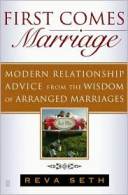Automatic Computerised Allotment of Government General pool residential accomodation
 Automatic Computerised Allotment of Government In order to ensure complete transparency in allotment of General Pool residential accommodation, faster rotation of housing stock and to provide more convenience to the applicants, an Automated System of Allotment (ASA) has been launched by the Directorate of Estates. Allotments as per this system would be fully automated, online and based on the preferences for specific houses indicated by the applicants.
Automatic Computerised Allotment of Government In order to ensure complete transparency in allotment of General Pool residential accommodation, faster rotation of housing stock and to provide more convenience to the applicants, an Automated System of Allotment (ASA) has been launched by the Directorate of Estates. Allotments as per this system would be fully automated, online and based on the preferences for specific houses indicated by the applicants.
The Secretary, Urban Development Dr. M.Ramachandran made the first allotted of houses in Type VI (A) (C-II) through the Automated System here today in a function held at Nirman Bhawan. Launching the new system, Dr.Ramachandran said it is a milestone initiative to bring transparency and best practices in the official working.
The Directorate of Estates would introduce Automated System of Allotment for other type of houses in phases. Allotment of Type V (B) (D-I) will be introduced by July and Types V (A) (D-II) & IV (Spl.) houses by August this year. Schedule for implementation of ASA in respect of other types of houses will be finalized soon.
HOW AUTOMATED SYSTEM OF ALLOTMENT OPERATES
All applications for allotment of houses will be accepted “on-line” only. For this purpose every applicant will have to create his/her account and fill up the required application form by following the instructions on the screen.
After completing the process on-line, the applicant will have to take a printout of his/her application along with account details etc. and get it officially forwarded from his/her office to the Directorate of Estates for activation of his/her account.
On receipt of the paper application duly forwarded by the controlling office of the applicant, his/her account will be activated by sending him/her a Registration Number (which will work as his/her ID) and a pass-word through SMS and/or e-mail.
Once the applicant has received his/her registration number and Login password through SMS/e-mail, then he/she will be able to operate his/her account and make required changes in his/her preferences/ choices etc. as and when required on-line.
All the existing applicants will also be sent their Login ID and password through SMS/e-mail to enable them to operate their accounts on-line. Both existing applicants as well as new applicants will have to indicate their choices/preferences for houses as per the drop-down menu on the screen.
All the houses falling vacant during the month i.e. till 30th/31st of the month would be displayed category-wise and pool-wise on the website of the Directorate of Estates (www.estates.nic.in) for allotment in the subsequent months.
The list of vacant houses available for allotment as well as the Waiting List as on the last day of the month will remain frozen during the period from 1st to 9th of the month.
Applicants have to make one of the following three options from 1st to 9th of the month:- - To choose particular house(s) in order of applicant’s preference, out of the list of houses available for allotment as listed in the website. No need to restrict the preference to the localities/floors restricted earlier for allotment. - To give option for allotment of any house as per the localities/floors restricted earlier for allotment.
The localities/floors can also be modified. - To exercise the option of “not interested in any house currently available for allotment”. (This would also be the default choice in case applicant does not give any choice). Choice of specific houses can be made or modified from 9.00 a.m. on the 1st of the month to 5.00 p.m. on 9th of the month.
Allotment of houses as per choices/preferences of applicant will be made on 10th of each month only for those applicants whose accounts have been activated in the preceding or earlier months. An applicant will be allotted a particular house chosen by him if nobody senior to him in the waiting list has opted for the same. The concept of technical acceptance will be done away with.
Applicants will not be eligible for more than two allotments in each category of house. After having opted for a particular house and having been allotted the same, the applicant will have to necessarily accept the allotment. In the event of non-acceptance, the applicant will be debarred for further allotment for a period of one year.
 disappoint. There are others who are propagating this. One of them is Reva Seth who recently wrote First Comes Marriage in which she
disappoint. There are others who are propagating this. One of them is Reva Seth who recently wrote First Comes Marriage in which she 
